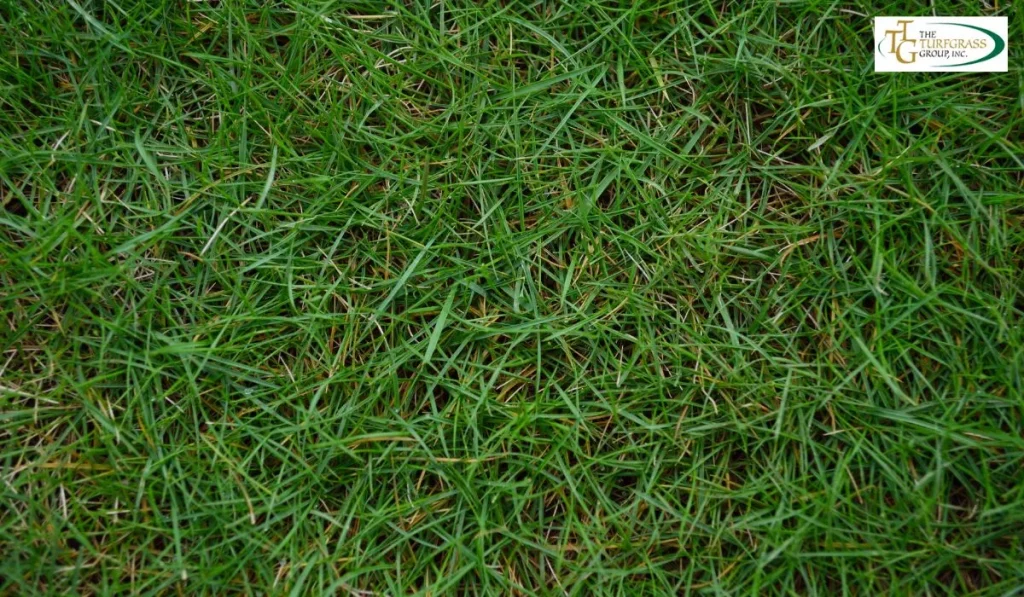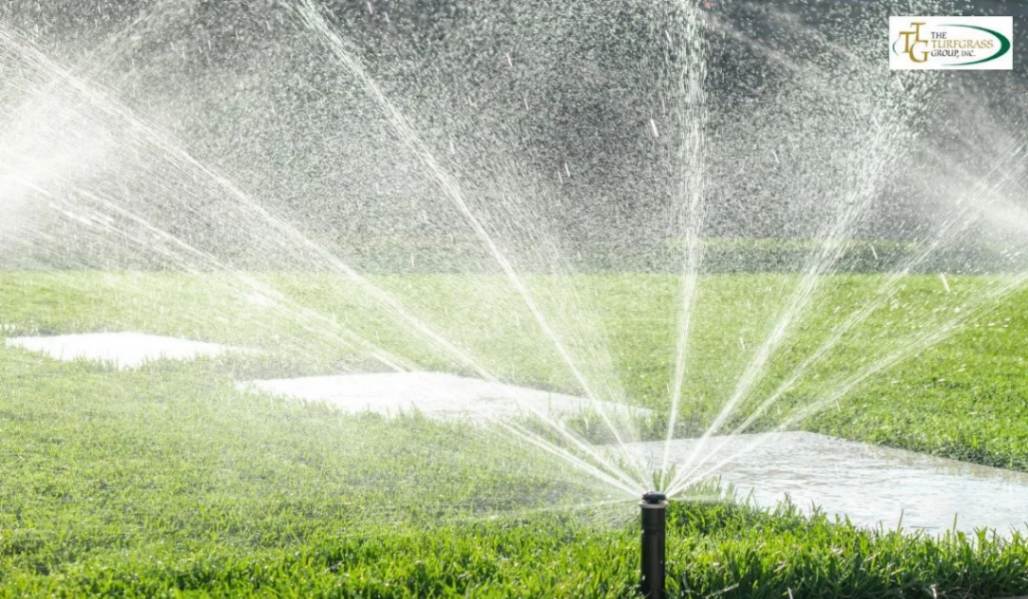
Bermuda grass is well-known for its lush and resilient appearance, making it a top choice for homeowners seeking a beautiful lawn.
However, this hardy turf can experience a variety of issues, such as thinning, brown patches, and uneven growth.
If you’re facing these challenges and wondering how to fix Bermuda grass, you’re certainly not alone.
While reviving Bermuda grass is achievable with the right care and techniques, sometimes it’s more efficient to hire professionals to ensure the job is done correctly.
In this guide, we’ll explore how to fix Bermuda grass effectively, both through DIY methods and by considering professional services.
Why Choose Bermuda Grass?
Before diving into solutions, it’s essential to understand why Bermuda grass is such a favored choice among homeowners.
This warm-season grass thrives in hot and humid climates, boasting a dense growth pattern that helps it withstand heavy foot traffic and drought conditions.
Its durability makes it ideal for lawns, sports fields, and golf courses.
Despite its hardiness, Bermuda grass is not immune to problems, which is why proper care and maintenance are vital.
Benefits of Bermuda Grass
- Heat Resistance: Bermuda grass thrives in temperatures between 75°F and 100°F, making it perfect for warmer regions.
- Drought Tolerance: Once established, Bermuda grass requires less water than many other grass types.
- Rapid Growth: Bermuda grass grows quickly, which allows it to recover rapidly from wear and tear.
- Versatility: Suitable for various applications, from residential lawns to sports fields and golf courses.
Common Problems With Bermuda Grass
To effectively restore your Bermuda grass, it’s crucial to identify the root cause of the problems you’re experiencing.
Here are some of the most common issues that homeowners encounter:
Thinning Areas
Thinning can occur for several reasons, including over-fertilization, poor mowing habits, and pest damage.
When Bermuda grass thins out, it can create an unattractive patchy appearance, detracting from your lawn’s overall beauty.
Brown Patches
Brown patches may appear due to drought conditions, fungal diseases, or a lack of essential nutrients.
These unsightly areas can turn a once-vibrant lawn into a dry, unappealing landscape.
Weed Invasion
Weeds are a common adversary for Bermuda grass.
They compete for nutrients and water, which can weaken your lawn’s overall health and vigor.
Uneven Growth
Inconsistent growth patterns often stem from improper watering practices, shading from trees or buildings, and compacted soil.
Uneven growth can lead to an unkempt appearance and make it difficult to achieve that lush, green look.
How to Fix Bermuda Grass: DIY Solutions
If you want to take matters into your own hands, here are several effective DIY strategies for how to fix Bermuda grass.
Mow Properly
Adjusting your mowing routine is one of the simplest yet most effective ways to revive your Bermuda grass.
Bermuda grass should be mowed to a height between 1.5 and 2 inches.
Avoid cutting it too short, as this can stress the grass and increase its susceptibility to disease and pests.
Tips for Mowing
- Use Sharp Blades: Ensure your mower blades are sharp to make clean cuts.
- Mow When Dry: Avoid mowing when the grass is wet to prevent damage and uneven cuts.
- Alternate Mowing Patterns: Changing your mowing direction regularly can promote healthier growth.
Water Correctly

Bermuda grass thrives when watered deeply but infrequently.
Aim for about one inch of water per week, preferably in the morning to reduce evaporation.
Avoid watering in the evening, as this can encourage fungal growth.
Watering Techniques
- Use a Sprinkler System: Automated systems can help ensure consistent watering.
- Check Soil Moisture: Use a soil moisture meter to determine when to water.
- Observe Grass Color: If your grass begins to look bluish or feels dry, it may be time to water.
Fertilize Wisely
Over-fertilization can lead to thin grass, so it’s crucial to use a balanced fertilizer specifically formulated for Bermuda grass.
Apply fertilizer during the growing season, following the manufacturer’s guidelines to avoid nutrient burn.
Fertilization Tips
- Choose the Right Fertilizer: Look for a fertilizer with a balanced N-P-K ratio suitable for Bermuda grass.
- Test Your Soil: Regular soil testing can help you understand nutrient needs.
- Timing: Fertilize at the beginning of the growing season and again mid-summer for best results.
Aerate the Soil
Compacted soil can significantly hinder the growth of your Bermuda grass by limiting airflow, water, and nutrient flow to the roots.
Aerating your lawn once or twice a year can improve soil drainage and root development.
Aeration Techniques
- Core Aeration: Use a core aerator to remove plugs of soil, allowing air and water to penetrate.
- Timing: The best time to aerate is during the growing season when the grass can recover quickly.
Control Weeds
Weeds can severely impact the health of your Bermuda grass.
Using pre-emergent herbicides can prevent weed seeds from germinating, while post-emergent herbicides can tackle weeds that have already sprouted.
Weed Control Strategies
- Regular Monitoring: Keep an eye on your lawn for signs of weed growth.
- Spot Treatment: Treat individual weeds as soon as you notice them to prevent spreading.
Address Pests and Diseases
Pests and diseases can cause significant damage to Bermuda grass.
Look for signs of pests or diseases, such as discoloration, holes in the grass, or unusual spots.
If you notice anything unusual, apply appropriate pesticides or fungicides to prevent further damage.
Pest and Disease Management
- Identify the Problem: Research or consult experts to identify the specific pest or disease affecting your lawn.
- Use Natural Solutions: Consider organic pest control methods where possible.
Test the Soil
Regular soil testing can help you understand the pH levels and nutrient composition of your soil.
This information will allow you to adjust your fertilization and watering practices for optimal grass health.
Soil Testing Tips
- Frequency: Test your soil every few years for best results.
- Follow Up: Adjust your care regimen based on soil test recommendations.
Why DIY Might Not Be Enough
While DIY methods can effectively address minor issues, some lawn problems require professional expertise.
Knowing how to fix Bermuda grass is one thing, but applying the right solution at the right time can be challenging, especially without the necessary experience.
Expertise and Experience
A professional lawn care company possesses the knowledge and tools to diagnose Bermuda grass problems accurately.
Whether it’s a fungal infection, pest infestation, or soil compaction, they’ll know precisely how to treat it effectively.
Tailored Lawn Care Plans
Every lawn is unique, and what works for one may not work for another.
A professional grass company can develop a customized treatment plan based on your lawn’s specific needs, ensuring optimal results.
Time and Convenience
Lawn care is time-consuming, and many homeowners simply don’t have the time to dedicate to it.
By hiring a professional company, you can save yourself the hassle while ensuring your lawn receives the care it needs.
Advanced Tools and Techniques
Professional grass companies have access to high-quality tools and techniques that homeowners typically don’t have.
For instance, they may use specialized aeration machines or advanced pest control treatments that provide superior results.
Hiring a Professional Grass Company: What to Expect
When you hire a professional grass company, you can expect a comprehensive lawn care service that addresses all aspects of Bermuda grass maintenance and repair.
Here’s what a typical service may include:
Lawn Assessment
The first step in any lawn care service is an assessment.
The grass company will evaluate your lawn’s condition, including soil health, grass density, and any visible signs of pests or diseases.
Customized Treatment Plan
Based on the assessment, the company will create a personalized treatment plan that addresses your lawn’s unique needs.
This may include mowing schedules, fertilization plans, weed control strategies, and more.
Professional Application
Once the plan is in place, the professionals will carry out the necessary treatments, such as aeration, pest control, and fertilization, using specialized equipment.
Ongoing Maintenance
A professional grass company doesn’t just fix your Bermuda grass once and leave.
They offer ongoing maintenance plans to ensure your lawn remains healthy and beautiful throughout the year.
How Hiring a Grass Company Can Save You Money
While it may seem counterintuitive, hiring a professional grass company can actually save you money in the long run.
DIY lawn care often involves trial and error, which can lead to wasted money on products that don’t work.
A professional will get it right the first time, saving you both time and resources.
Additional Services Offered by Grass Companies
Many professional grass companies offer a range of additional services that can further enhance the health and appearance of your lawn.
These may include:
Seasonal Cleanups
Remove debris, leaves, and other lawn clutter that could stifle grass growth.
Irrigation System Installation
Ensure your lawn gets the right amount of water with an automated irrigation system.
Soil Amendments
Improve soil health by adding necessary nutrients and balancing pH levels.
Landscape Design
Transform your entire outdoor space with professional landscape design services that complement your Bermuda grass lawn.
Conclusion
If you’re dealing with brown patches, thinning areas, or invasive weeds, you now know how to fix Bermuda grass.
While DIY solutions can certainly help, hiring a professional grass company is often the best approach for achieving long-lasting, effective results.
They possess the expertise, tools, and time to provide the care your Bermuda grass requires, saving you frustration in the process.
For homeowners looking to revive their lawns, a professional grass company offers a customized, hassle-free solution that delivers impressive results.
Stop guessing and get the perfect lawn you’ve always wanted by partnering with the experts.
FAQs
What is the best time to fix Bermuda grass?
The optimal time to address Bermuda grass issues is during its active growing season, typically from late spring to summer.
Can I fix Bermuda grass with just DIY methods?
While many issues can be resolved with DIY methods, significant problems often necessitate professional expertise for effective resolution.
How often should I water Bermuda grass?
Water Bermuda grass deeply but infrequently, aiming for about one inch per week to encourage strong root development. By following these tips and knowing how to fix Bermuda grass, you can ensure your lawn remains lush and vibrant all season long.